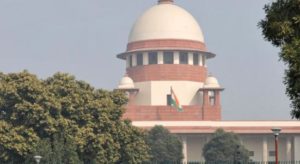
The Supreme Court on Friday said inaction or failure of some officials of one section of the state administration cannot be the basis to infer a pre-planned criminal conspiracy by the authorities or to term it as a state sponsored violence against the minority community.
Upholding the clean chit given to then Gujarat Chief Minister Narendra Modi and others in 2002 riots, a bench of Justices A M Khanwilkar, Dinesh Maheshwari and C T Ravikumar said, “Conspiracy cannot be readily inferred merely on the basis of the inaction or failure of the state administration.”
The bench also pointed out overrunning of state administration is not an unknown phenomenon.
“It has been witnessed all over the globe during the second wave of (Covid-19) pandemic, where the countries with even best of medical facilities crumbled and their management skills were overrun under the pressure. Can it be said to be a case of hatching of criminal conspiracy? We need not multiply such instances of overrun,” the bench added.
In fact, the court noted that in the enquiry undertaken by the court-appointed SIT, headed by former CBI director R K Raghavan, it had been found that the developments were in quick succession and had overrun the arrangements already in place. The enquiry also pointed out additional support was made by calling Army on February 28, 2002 itself, besides the curfew imposed in the most disturbed areas of the state.
“In light of such timely corrective measures taken by the state government in right earnest and repeated public assurances given by the then Chief Minister (Modi) that guilty will be punished for their crime(s), and to maintain peace, it would be beyond comprehension of any person of ordinary prudence to bear suspicion about the meeting of minds of named offenders and hatching of conspiracy by the state at the highest level, as alleged, much less grave or strong suspicion as being the quintessence for sending the accused for trial for an offence of criminal conspiracy,” it said.
The court also said breakdown of law-and-order situation, if for short duration, cannot partake the colour of breakdown of rule of law or constitutional crisis.
“To put it differently, misgovernance or failure to maintain law-and-order during a brief period may not be a case of failure of constitutional machinery in the context of tenets embodied in Article 356 of the Constitution,” it said.
The bench emphasised that there must be credible evidence regarding state sponsored breakdown of law-and-order situation; not spontaneous or isolated instances or events of failure of state administration to control the situation.
“Suffice it to observe that the breakdown of law-and-order situation in the state including attributable to the alleged inaction of the (State) duty holders, owing to spontaneous mass violence cannot be a safe measure to infer as being a part of the criminal conspiracy at the highest level of political dispensation unless there is clear evidence to so conclude regarding meeting of the minds of all concerned and their concerted efforts to commit or promote commission of such crime,” the bench said.
The top court also said the allegation in the present case was founded on falsehood of the claim of IPS officer Sanjeev Bhatt and leader Haren Pandya regarding the utterances of the then Chief Minister in review meeting chaired by him, which stood completely exposed after the investigation by the SIT.




 Driving Naari Programme launched in Chandigarh
Driving Naari Programme launched in Chandigarh






























